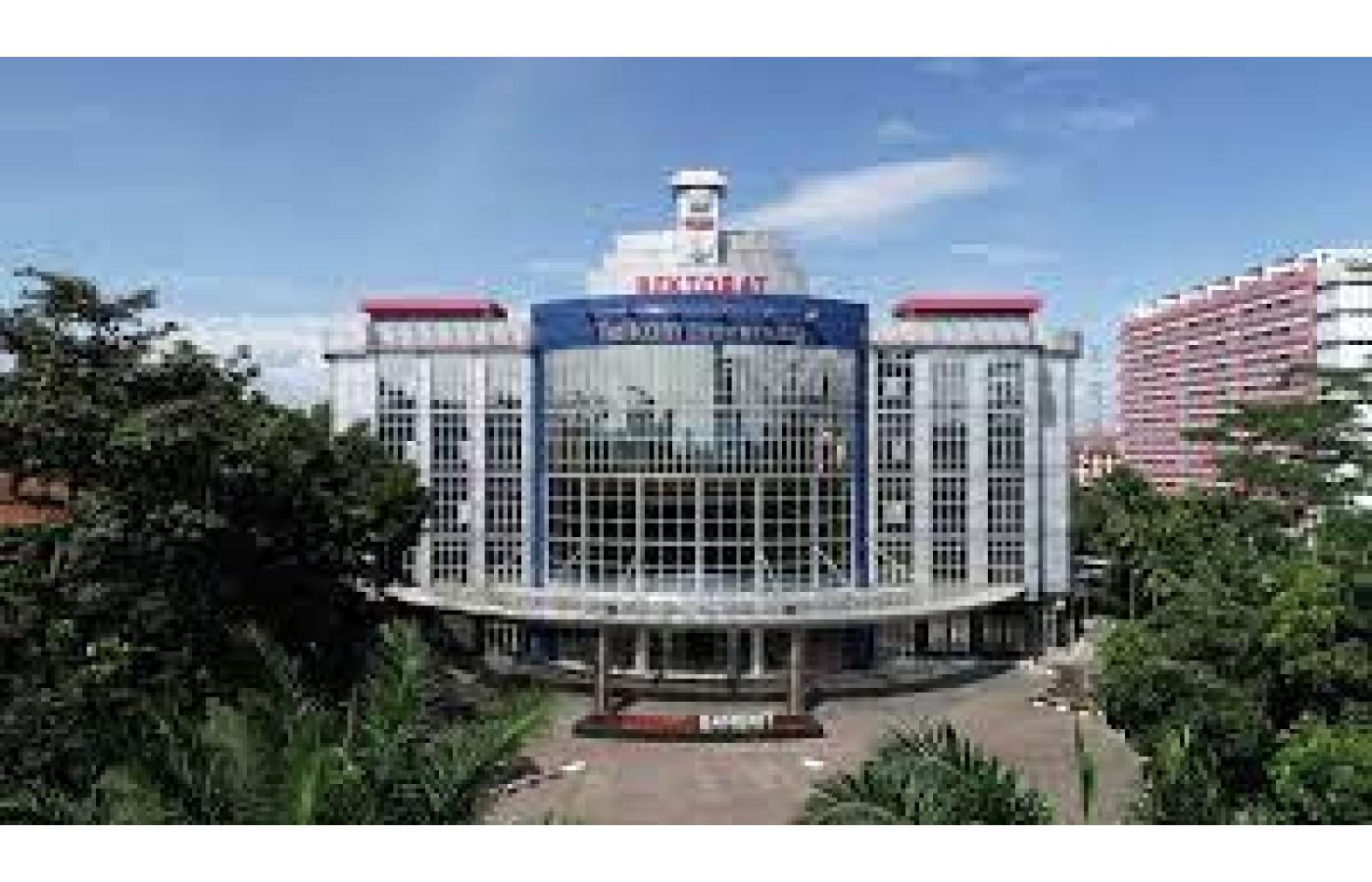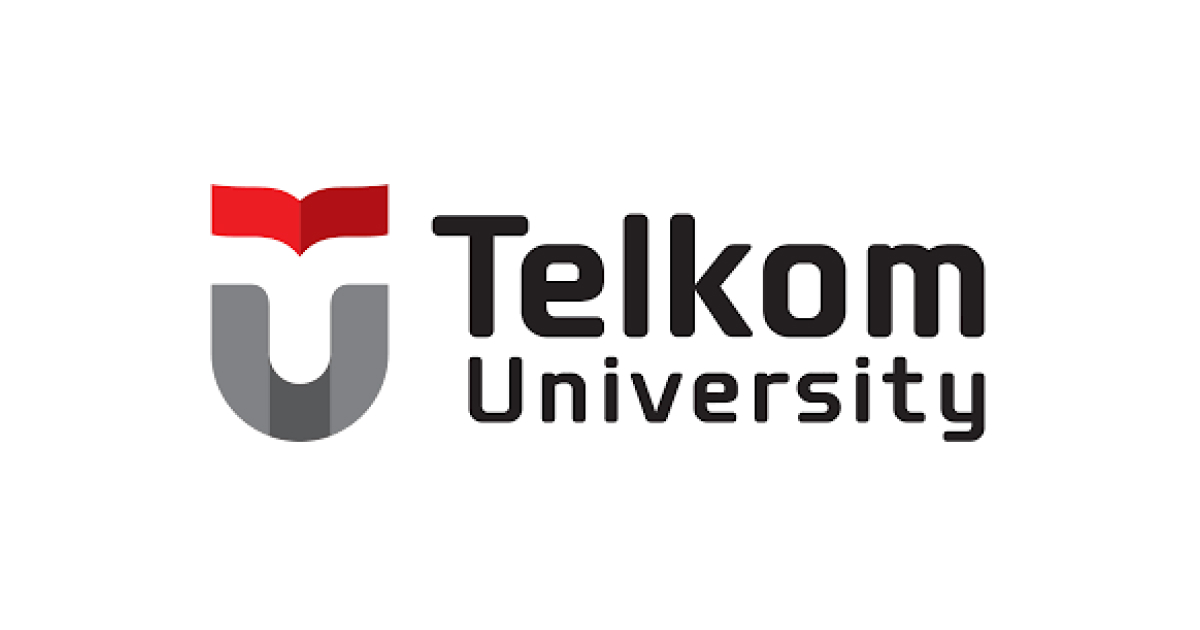Telkom University
Indonesia, Bandung
Telkom University is determined to be a research and entrepreneurial university that benefits for society.

Main Services:
education, distance learning, electronic learning, research, research center, research groups, scholarship

We hope to create graduates who have global competitiveness, be able to create a culture of research and innovation to improve the quality of society’s life, and be able to contribute in national economic development through the entrepreneurship development.
Telkom University has a commitment in providing quality education. It was proved by the achievement of A Accreditation or Excellence from the National Accreditation Board for Higher Education (BAN-PT) and International Accreditation for several study programs. Moreover, the Ministry of Education and Culture (Kemenristekdikti) has named Telkom University as the Best Private University in Indonesia.
Telkom University (Indonesian: Universitas Telkom, abbreviated as Tel-U) is a private university located in Bandung, West Java, Indonesia. Tel-U has several times ranked as the top private university in Indonesia and has been ranked to be one of The Best Universities in Indonesia. Tel-U also became Indonesia’s First Private University to be accredited “Excellent” by BAN-PT.
Established on August 14, 2013, with four institutions that were under Telkom Indonesia through its education-focused wing, Telkom Education Foundation (now Telkom Foundation), were merged to form the university. These four forming institutions were the Telkom Institute of Technology (Institut Teknologi Telkom), Telkom Institute of Management (Institut Manajemen Telkom), Telkom Polytechnic (Politeknik Telkom) and the Telkom College of Art and Design Indonesia (Sekolah Tinggi Seni Rupa dan Desain Indonesia Telkom). The university, like its preceding institutions, maintains links with hundreds of companies, many of which are in the telecommunications sector.
Telkom University mergered
Since 2009, there has been a plan to merge the four universities under the Telkom Education Foundation (Yayasan Pendidikan Telkom), namely the Telkom Institute of Technology, the Telkom Institute of Management, Telkom Polytechnic and the Telkom Indonesia College of Art and Design. It was initially planned that the four institutions would be merged into one university in 2012. But due to several problems the merge was delayed to 2013.
On August 14, 2013, Telkom University was established based on the Decree of the Director General of Higher Education of the Ministry of Education and Culture Number 309/E/0/2013. On August 31, 2013, Telkom University was inaugurated by the Minister of Cultural Education of the Republic of Indonesia, Muhammad Nuh, at the Telkom University Convention Hall, by presenting the first Chancellor of Telkom University, Mochamad Ashari, who is a Professor of Electrical Engineering at the Sepuluh Nopember Institute of Technology, Surabaya.
In merging into Telkom’s University in 2013, Each of the four schools formed a faculty inside the university. IT Telkom was transformed into the Telkom Engineering School (TES). Subsequently, in 2014 TES developed into three faculties, namely the School of Electrical Engineering (SEE), the School of Industrial Engineering (SIE) and the School of Computing (SC). IM Telkom transformed into the Telkom Economics and Business School (TEBS). Subsequently, in 2014, TEBS developed into two faculties, namely the School of Economics and Business (SEB)and the School of Communications and Business. Telkom Polytechnic transformed into the Telkom Applied Science School (TASS). Subsequently, in 2014 was changed to the School of Applied Science (SAS). STISI Telkom was transformed into a Faculty that was named Telkom Creative Industries School (TCIS). Subsequently, in 2014 was changed to the School of Creative Industries (SCI).
The Telkom University campus is located in the Bandung Technoplex area. The campus is a development of the STT Telkom campus. Telkom University has the abbreviation Tel-U and the motto of “Creating the Future” which was initiated by Arief Yahya, President Director of Telkom Indonesia when Telkom University was established.
Campus facilities
Joint lecture halls with 10 floors and also “Graha Wiyata Cacuk Sudarijanto” with lecture halls in faculties of more than 100 classes. Telkom also has a TULT lecture building (Telkom University Landmark Tower), one of the public lecture buildings. This building also functions as a lecture building for three faculties, namely the Faculty of Industrial Engineering, the Faculty of Informatics and the Faculty of Electrical Engineering. Consisting of 19 floors, this building is the tallest lecture building in West Java. TULT is a smart building that carries an environmentally friendly concept. In addition to the administrative office, this building is also equipped with infrastructure with hybrid learning methods (a combination of online and face-to-face methods) and also has a laboratory.
Telkom University Convention Hall (TUCH), Multipurpose Building and SEE-SIE-SOC Auditorium, as well as SEB-SCB, SCI and SAS Halls.
Dormitory, First-year undergraduates are required to live on campus. It has facilities in the form of rooms, prayer rooms, a field, a lobby, a function room, internet, security officers and a parking area.
Ceremony infrastructure and sports fields such as tennis courts, indoor basketball, badminton, indoor and outdoor futsal, running tracks, climbing towers and student center buildings.
Trade areas such as the Business Center, FIT and FIK faculty canteens, Bamboo canteens, dormitory canteens, Honesty Canteens (Cacuk Sudarijanto Building), Citra Cooperatives and student cooperatives, as well as T-Mart minimarkets.
Bank Mandiri and BNI offices as well as several ATM centers located in the Cacuk Sudarijanto Building, North Gate and T-Mart.
Syamsul ‘Ulum Mosque, a main mosque on the Telkom University campus with a capacity of up to 6000 people. The Syamsul ‘Ulum Mosque is located in the Telkom University campus complex, founded on September 28, 1994, which was marked by the erection of the first pillar by the then Minister of Education and Culture of the Republic of Indonesia, Wardiman Djojonegoro. This mosque was inaugurated on May 29, 1996, by the then Minister of Research and Technology, B. J. Habibie, who said that there was no need for a dichotomy between science and technology and religious knowledge.[35]
Student Clinic, is a health service center for all students and the academic community, namely Telkomedika. Telkomedika is a subsidiary of Yakes Telkom which was established in 2008. The facilities provided by Telkomedika Health services include First Level Outpatient Services (General and Dental Clinics), Advanced Outpatient Services (specialist doctors, laboratory examinations, physiotherapy, etc.), Inpatient Services using referrals from First Level Outpatient Services or Advanced Outpatient Services referrals from First Level Outpatient Services. The Telkomedika Clinic room at Telkom University is also equipped with medical equipment.[36]
Infiltration Lake and Telkom University Plaza, integrated with a green environmental management system and water resource management within the framework of a green campus commitment. In addition to having a campus forest and drainage system, at Telkom University there is also an infiltration lake equipped with a plaza and running track as open public space. The lake plaza which is located in the middle of the campus area also functions as a junction that connects all areas of the faculty complex. In this plaza and lake area, various outdoor art activities are often held, among others, it was used to organize a culture night event which was part of the implementation of ICoICT 2013 (International Conference on Information and Communication Technology) attended by key speakers and speakers from Indonesia. from 30 countries across continents as well as public officials.



